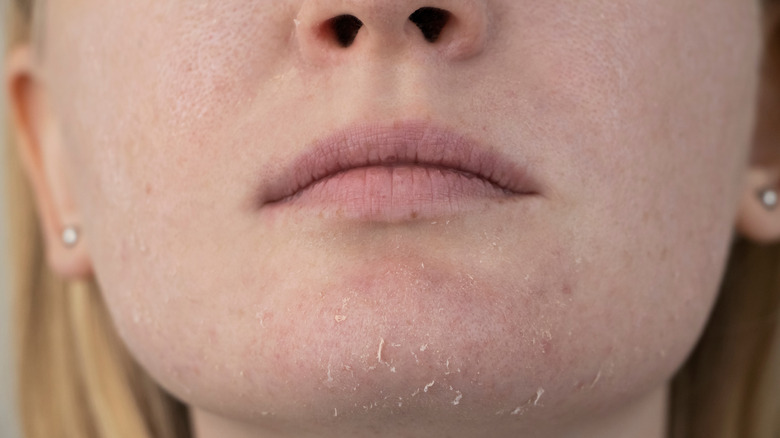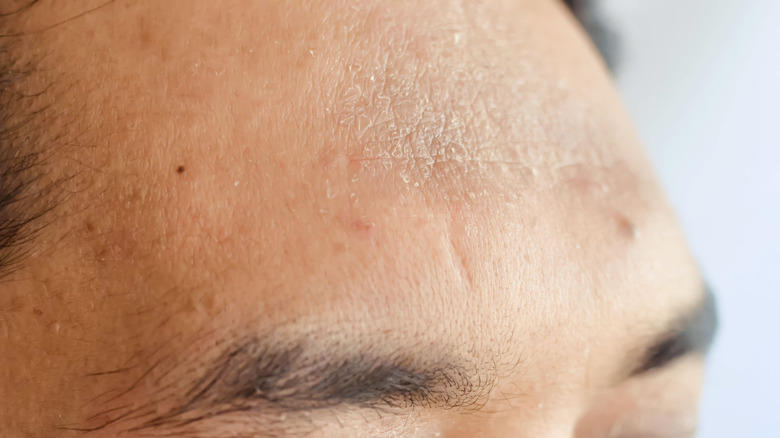What's The Difference Between Dry And Dehydrated Skin?
You might think of dry skin and dehydrated skin as the same thing, and while they both indicate that your skin is lacking proper hydration, there are some key differences between the two conditions.
Dry skin results when your skin does not have enough hydration from water and oils the skin produces naturally. Dry skin can be mild or severe, and symptoms include patches of itchy, flaky, or skin. Some areas may sting or burn. In some cases, skin can also be cracked and peeling. Dry skin can be caused by dehydration, as well as using harsh products on the skin. Your skin may also be dry if you live in an area where temperatures are cold and less humid. Conditions such as eczema, kidney disease, malnutrition, and diabetes can also cause dry skin. Certain medications, such as antacids, diuretics, laxatives, and antihistamines might contribute to dry skin, according to Medical News Today.
Treatment for dry skin includes using moisturizers. Applying moisturizers right after washing will help keep moisture locked in. You might also need to skip hot showers and baths to help treat dry skin. For severe cases, you may need to use over-the-counter lotions that contain lactic acid and/or urea (via the Mayo Clinic). But what makes dry skin different from dehydrated skin?
Dehydrated skin has different symptoms
When your skin is dehydrated, you may suffer from dryness and itchy patches. However, dehydrated skin has other symptoms that include sunken eyes, under-eye circles, a lackluster appearance, and wrinkles. Dehydrated skin might even be oily as it attempts to make up for a lack of moisture, according to Mind Body Green. This could even lead to inflammation, which might cause breakouts.
Lifestyle changes usually make a difference when it comes to treating dehydrated skin. The first step to treat this condition is to drink more water, per Healthline. Try to aim for 8 glasses of water a day, but you may need more, depending on your weight and lifestyle. Cutting back on caffeine and alcohol will also help hydrate your skin. You should try to stop (or at least cut down on) smoking, if you do so regularly. Keeping a steady exercise routine helps, and you should drink water every 20 minutes while you are working out.


